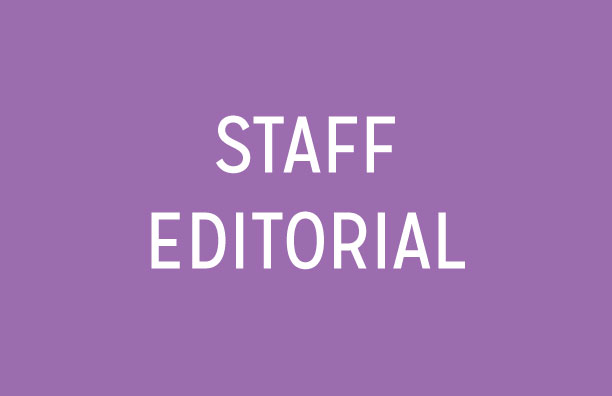Freedom of speech is a right that all American citizens are guaranteed, as many may know. However, what students may not know is that their own rights are restricted under the decision of the 1988 court case of Hazelwood v. Kuhlmeier. This decision targets student journalism, allowing school administrators to censor student-led publications through their right of prior review and prior restraint.
However, several states have been working to change this. To date, Arkansas, California, Colorado, Illinois, Iowa, Kansas, Massachusetts, Oregon, Pennsylvania, Washington and, most recently, North Dakota have passed laws restricting the power of this decision. Other states, such as Nebraska and Wisconsin, are currently in the process of bringing these rights to their students. Sadly, Indiana legislators have not yet made a move to provide these protections. It’s time for that to change.
 We at the HiLite consider it our duty to bring relevant news CHS students. In many cases, this duty involves allowing students to voice their opinions on often controversial issues. We would be unable to fulfill this duty without the support of our administrators, who, despite the fact that Indiana currently offers no protection from Hazelwood v. Kuhlmeier, allow the HiLite to function as a forum of respectful discussion without exercising their rights of prior review and restraint to censor student writings. However, many student-led publications throughout our state are not offered the same freedoms.
We at the HiLite consider it our duty to bring relevant news CHS students. In many cases, this duty involves allowing students to voice their opinions on often controversial issues. We would be unable to fulfill this duty without the support of our administrators, who, despite the fact that Indiana currently offers no protection from Hazelwood v. Kuhlmeier, allow the HiLite to function as a forum of respectful discussion without exercising their rights of prior review and restraint to censor student writings. However, many student-led publications throughout our state are not offered the same freedoms.
As publications in other states where free speech in student journalism is protected have shown, creating legal protection for student journalism has many benefits both for schools and students. Free speech in student-led publications allows students to better understand the rights given to them by the First Amendment, makes students responsible for their speech and teaches them that their opinions can affect whole communities in both positive and negative ways.
Supporters of Hazelwood argue that school administrators have the right to censor student writings due to an educator’s responsibility to promote traditional values. However, restricting students’ ability to speak freely on issues that affect them discourages one of the most traditional American values: freedom of speech. Censoring students encourages fear of speaking out, and a lack of student voices can negatively affect communities. According to a 2014 study conducted by the Maine Law Review, student papers with legal protection carried twice as many editorials as papers without, with a majority of these editorials targeting important school and community issues.
Supporters of Hazelwood also point out that student-led publications should be censored because they are sponsored by the school and controversial opinions expressed in the publication could negatively affect the reputation of the school. However, offering protections to students in Indiana law takes the responsibility off the school and places it on the students who must be sure to regulate their own speech in order to promote healthy discussion. Additionally, the fact that many publications have adult advisers prevents abuse of these freedoms.
All of these benefits can already be seen in our school thanks to the freedoms our administrators have permitted. We at the HiLite strive to be a model of responsible use of free speech without administrative oversight. We work hard to discuss current events in a manner that is respectful, thorough and credible, and we hope that our success in these areas can serve as a model for what student expression can achieve when it is protected. It is time for Indiana legislators to follow others states’ lead and offer protections for free speech to all of its citizens, including student journalists.

































![AI in films like "The Brutalist" is convenient, but shouldn’t take priority [opinion]](https://hilite.org/wp-content/uploads/2025/02/catherine-cover-1200x471.jpg)









































![Review: “The Immortal Soul Salvage Yard:” A criminally underrated poetry collection [MUSE]](https://hilite.org/wp-content/uploads/2025/03/71cju6TvqmL._AC_UF10001000_QL80_.jpg)
![Review: "Dog Man" is Unapologetically Chaotic [MUSE]](https://hilite.org/wp-content/uploads/2025/03/dogman-1200x700.jpg)
![Review: "Ne Zha 2": The WeChat family reunion I didn’t know I needed [MUSE]](https://hilite.org/wp-content/uploads/2025/03/unnamed-4.png)
![Review in Print: Maripaz Villar brings a delightfully unique style to the world of WEBTOON [MUSE]](https://hilite.org/wp-content/uploads/2023/12/maripazcover-1200x960.jpg)
![Review: “The Sword of Kaigen” is a masterpiece [MUSE]](https://hilite.org/wp-content/uploads/2023/11/Screenshot-2023-11-26-201051.png)
![Review: Gateron Oil Kings, great linear switches, okay price [MUSE]](https://hilite.org/wp-content/uploads/2023/11/Screenshot-2023-11-26-200553.png)
![Review: “A Haunting in Venice” is a significant improvement from other Agatha Christie adaptations [MUSE]](https://hilite.org/wp-content/uploads/2023/11/e7ee2938a6d422669771bce6d8088521.jpg)
![Review: A Thanksgiving story from elementary school, still just as interesting [MUSE]](https://hilite.org/wp-content/uploads/2023/11/Screenshot-2023-11-26-195514-987x1200.png)
![Review: "When I Fly Towards You", cute, uplifting youth drama [MUSE]](https://hilite.org/wp-content/uploads/2023/09/When-I-Fly-Towards-You-Chinese-drama.png)
![Postcards from Muse: Hawaii Travel Diary [MUSE]](https://hilite.org/wp-content/uploads/2023/09/My-project-1-1200x1200.jpg)
![Review: "Ladybug & Cat Noir: The Movie," departure from original show [MUSE]](https://hilite.org/wp-content/uploads/2023/09/Ladybug__Cat_Noir_-_The_Movie_poster.jpg)
![Review in Print: "Hidden Love" is the cute, uplifting drama everyone needs [MUSE]](https://hilite.org/wp-content/uploads/2023/09/hiddenlovecover-e1693597208225-1030x1200.png)
![Review in Print: "Heartstopper" is the heartwarming queer romance we all need [MUSE]](https://hilite.org/wp-content/uploads/2023/08/museheartstoppercover-1200x654.png)




